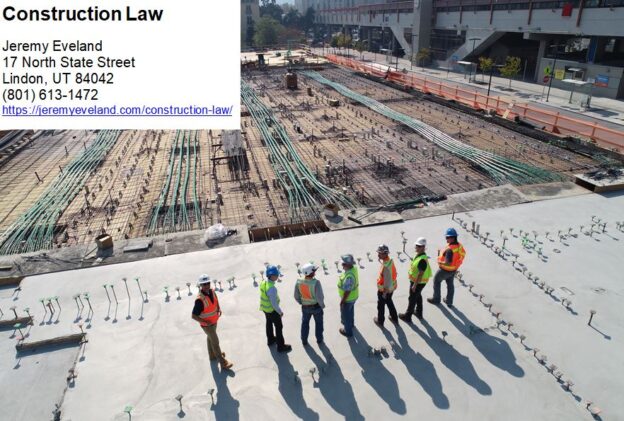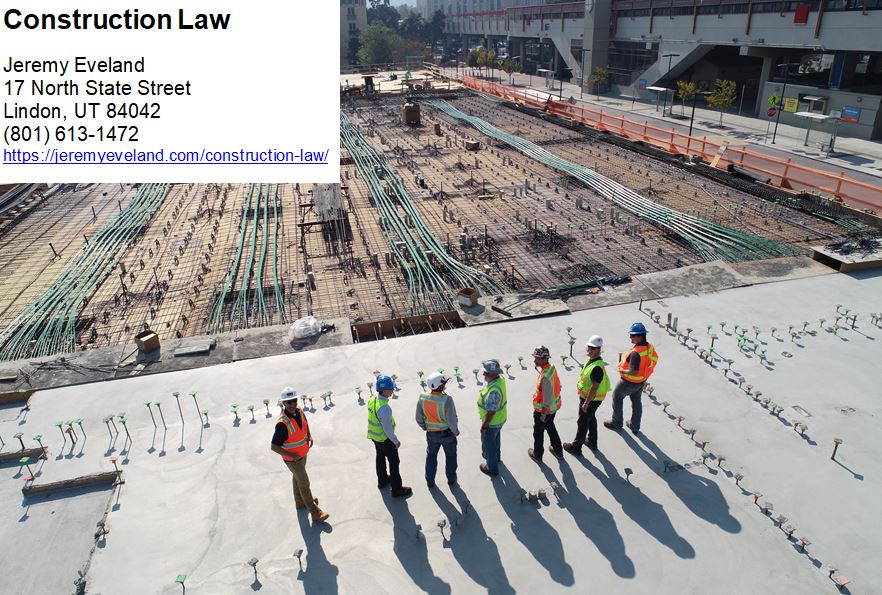Promissory Estoppel
-
Contract Lawyer
- Introduction
- Estoppel in English Law: Examining the Legal Principles of Promissory Estoppel
- Legal Definition of Promissory Estoppel in Contract Law
- The High Trees Case: Examining the Impact of Promissory Estoppel on Contract Law
- Examining the Requirements of Promissory Estoppel: What You Need to Know
- Exploring the Doctrine of Promissory Estoppel: A Comprehensive Overview
- Hiring a Contract Lawyer to Help with Promissory Estoppel
- Q&A
“Secure Your Promises with Promissory Estoppel!”
Introduction
Promissory estoppel is a legal doctrine that prevents a person from denying or going back on a promise they have made. It is a form of equitable estoppel, which is a legal principle that prevents a person from denying or going back on a statement or promise they have made. This doctrine is used to prevent a person from taking advantage of another person by making a promise and then going back on it. It is an important legal concept that is used to protect people from being taken advantage of in contractual agreements.
Estoppel in English Law: Examining the Legal Principles of Promissory Estoppel
Promissory estoppel is a legal principle in English law that prevents a party from going back on their word or promise. It is a form of equitable relief that is used to prevent a party from being unjustly enriched at the expense of another. The doctrine of promissory estoppel is based on the principle that a person should not be allowed to go back on their word or promise if it would be unfair to do so.
The doctrine of promissory estoppel was first established in the case of Central London Property Trust Ltd v High Trees House Ltd (1947). In this case, the defendant had agreed to reduce the rent payable on a property during the war years. After the war, the defendant sought to recover the full amount of rent that had been waived. The court held that the defendant was estopped from doing so, as it would be unfair to allow them to go back on their promise.
The doctrine of promissory estoppel has since been applied in a number of cases. In order for the doctrine to apply, three elements must be present: (1) a clear and unambiguous promise; (2) reliance on the promise; and (3) detriment suffered as a result of the reliance.
The first element requires that the promise must be clear and unambiguous. This means that the promise must be specific and not open to interpretation. The second element requires that the promise must have been relied upon by the other party. This means that the other party must have acted in a way that was reasonable in reliance on the promise. The third element requires that the other party must have suffered a detriment as a result of their reliance on the promise.
The doctrine of promissory estoppel is an important legal principle in English law. It is used to prevent a party from going back on their word or promise if it would be unfair to do so. The doctrine requires that three elements must be present in order for it to apply: a clear and unambiguous promise, reliance on the promise, and detriment suffered as a result of the reliance.
Legal Definition of Promissory Estoppel in Contract Law
Promissory estoppel is a legal doctrine that is used in contract law to prevent a party from going back on their word. It is based on the principle that a person should not be allowed to go back on their promise if another party has relied on that promise to their detriment.
Promissory estoppel is a form of equitable estoppel, which is a legal doctrine that prevents a party from denying or asserting something that is contrary to what they have previously said or done. In the context of contract law, promissory estoppel is used to enforce a promise that was made, even if there is no formal contract in place.
In order for promissory estoppel to be applied, the following elements must be present:
1. A clear and unambiguous promise was made by one party to another.
2. The promise was relied upon by the other party to their detriment.
3. The reliance was reasonable and foreseeable.
4. The promise was not fulfilled.
If these elements are present, then the party who made the promise may be estopped from denying or going back on their promise. This means that the promise may be enforced by a court, even if there is no formal contract in place.
Promissory estoppel is an important legal doctrine that is used to protect parties from being taken advantage of by another party who goes back on their word. It is an important tool for enforcing promises that were made, even if there is no formal contract in place.
The High Trees Case: Examining the Impact of Promissory Estoppel on Contract Law
Promissory estoppel is a legal doctrine that has been used to modify the traditional rules of contract law. It is based on the principle that a promise made without consideration should be enforced if the promisor should have reasonably expected the promisee to rely on the promise and the promisee did in fact rely on the promise to their detriment. This doctrine was first established in the English case of High Trees House Ltd. v. Montefiore (1947).
In the High Trees case, the defendant, Mr. Montefiore, had leased a property to the plaintiff, High Trees House Ltd., for a period of 10 years. During the war, the plaintiff was unable to pay the full rent due to the economic hardship caused by the war. The defendant agreed to accept a reduced rent for the duration of the war. After the war, the defendant attempted to collect the full rent that was originally agreed upon. The plaintiff argued that the defendant was estopped from doing so because of the promise to accept a reduced rent during the war.
The court found in favor of the plaintiff, ruling that the defendant was estopped from collecting the full rent due to the promise made during the war. The court held that the defendant should have reasonably expected the plaintiff to rely on the promise and that the plaintiff had in fact relied on the promise to their detriment. The court also held that the defendant was not entitled to the full rent due to the promise made during the war.
The High Trees case established the doctrine of promissory estoppel and has had a significant impact on contract law. This doctrine allows for the modification of traditional contract law rules in certain circumstances. It allows for the enforcement of promises made without consideration if the promisor should have reasonably expected the promisee to rely on the promise and the promisee did in fact rely on the promise to their detriment. This doctrine has been used in a variety of cases to modify the traditional rules of contract law.
The High Trees case is an important example of how the doctrine of promissory estoppel can be used to modify the traditional rules of contract law. This case demonstrates the importance of considering the circumstances of each case when determining whether a promise should be enforced. It also serves as a reminder that promises made without consideration can still be enforced if the promisor should have reasonably expected the promisee to rely on the promise and the promisee did in fact rely on the promise to their detriment.
Examining the Requirements of Promissory Estoppel: What You Need to Know
Promissory estoppel is a legal doctrine that is used to enforce a promise that was made without a formal contract. It is a way for a court to enforce a promise that was made in order to prevent injustice. In order for a court to enforce a promise under the doctrine of promissory estoppel, there are certain requirements that must be met.
First, there must be a clear and unambiguous promise that was made by one party to another. The promise must be definite and not vague or uncertain. The promise must also be made with the intention of creating a legal obligation.
Second, the promise must be relied upon by the other party. The other party must have acted in reliance on the promise, and must have suffered a detriment as a result of that reliance.
Third, the reliance must be reasonable. The other party must have had a reasonable expectation that the promise would be kept.
Finally, the reliance must be foreseeable. The promisor must have known or should have known that the other party would rely on the promise.
These are the basic requirements of promissory estoppel. It is important to understand these requirements in order to determine whether a promise can be enforced under the doctrine of promissory estoppel.
Exploring the Doctrine of Promissory Estoppel: A Comprehensive Overview
Promissory estoppel is a legal doctrine that is used to enforce a promise that would otherwise be unenforceable. It is a principle of equity that is used to prevent a person from going back on their word and to ensure that promises are kept. This doctrine is based on the idea that a person should not be allowed to go back on their word if it would cause another person to suffer a detriment.
The doctrine of promissory estoppel is based on the idea that a promise should be enforced if it would be unjust to allow the promisor to go back on their word. This doctrine is used to prevent a person from taking advantage of another person by making a promise that they do not intend to keep. It is also used to ensure that promises are kept and that people are held accountable for their actions.
In order for the doctrine of promissory estoppel to be applied, there must be a promise that is made by one party to another. The promise must be clear and unambiguous and must be made with the intention of creating a legal obligation. The promise must also be relied upon by the other party and must cause them to suffer a detriment if the promise is not kept.
The doctrine of promissory estoppel is used in a variety of situations. It is often used in contract law to enforce promises that are not otherwise enforceable. It is also used in tort law to prevent a person from taking advantage of another person by making a promise that they do not intend to keep.
The doctrine of promissory estoppel is an important legal principle that is used to ensure that promises are kept and that people are held accountable for their actions. It is a principle of equity that is used to prevent a person from taking advantage of another person by making a promise that they do not intend to keep. This doctrine is used in a variety of situations and is an important tool for ensuring that promises are kept and that people are held accountable for their actions.
Hiring a Contract Lawyer to Help with Promissory Estoppel
Promissory estoppel is a legal concept that can be used to enforce a promise made by one party to another. It is a powerful tool that can be used to protect the rights of both parties in a contract. When a contract is breached, the party that has been wronged can use promissory estoppel to seek damages or other remedies.
When faced with a situation involving promissory estoppel, it is important to seek the advice of a qualified contract lawyer. A contract lawyer can help you understand the legal implications of the situation and advise you on the best course of action. They can also help you draft a contract that will protect your rights and ensure that the other party is held accountable for any promises they make.
A contract lawyer can also help you understand the legal implications of promissory estoppel. They can explain the concept to you in detail and help you understand how it applies to your situation. They can also help you determine if the other party has breached the contract and advise you on the best way to proceed.
Finally, a contract lawyer can help you negotiate a settlement or other remedy if the other party has breached the contract. They can help you understand the legal implications of the situation and advise you on the best way to proceed.
Hiring a contract lawyer to help with promissory estoppel is a wise decision. A contract lawyer can provide you with the legal advice and guidance you need to protect your rights and ensure that the other party is held accountable for any promises they make.
Q&A
Q: What is promissory estoppel?
A: Promissory estoppel is a legal doctrine that prevents a person from going back on their word or promise when it would cause harm or injustice to another person. It is a form of equitable estoppel that is used to enforce promises that would otherwise be unenforceable due to a lack of consideration.
Q: What are the elements of promissory estoppel?
A: The elements of promissory estoppel are: (1) a clear and unambiguous promise; (2) reliance on the promise; (3) detriment caused by the reliance; and (4) injustice can only be avoided by enforcing the promise.
Q: What is the difference between promissory estoppel and contract law?
A: The main difference between promissory estoppel and contract law is that promissory estoppel does not require consideration to be enforced. In contract law, consideration is required for a contract to be enforceable.
Q: What are some examples of promissory estoppel?
A: Some examples of promissory estoppel include a promise to pay a debt, a promise to perform a service, or a promise to provide a benefit.
Q: What are the remedies for promissory estoppel?
A: The remedies for promissory estoppel are typically limited to the damages that were caused by the reliance on the promise. This means that the person who relied on the promise can only recover the amount of money or benefit that they lost as a result of relying on the promise.
Q: Is promissory estoppel a contract?
A: No, promissory estoppel is not a contract. It is a legal doctrine that is used to enforce promises that would otherwise be unenforceable due to a lack of consideration.
Health Care Directive Consultation
When you need legal help with a Health Care Directive call Jeremy D. Eveland, MBA, JD (801) 613-1472 for a consultation.
Jeremy Eveland
17 North State Street
Lindon UT 84042
(801) 613-1472
Related Posts
Irrevocable Life Insurance Trusts
What Is The Purpose Of A Business Attorney?
Business Transaction Lawyer Provo Utah
Trusted Personal Injury Attorneys in Utah
Legal Requirements to Start a Business
Real Estate Attorneys in Salt Lake City Utah
Business Contract Lawyer Riverton UT
Business Law and Intellectual Property
Commercial Litigation Strategies



